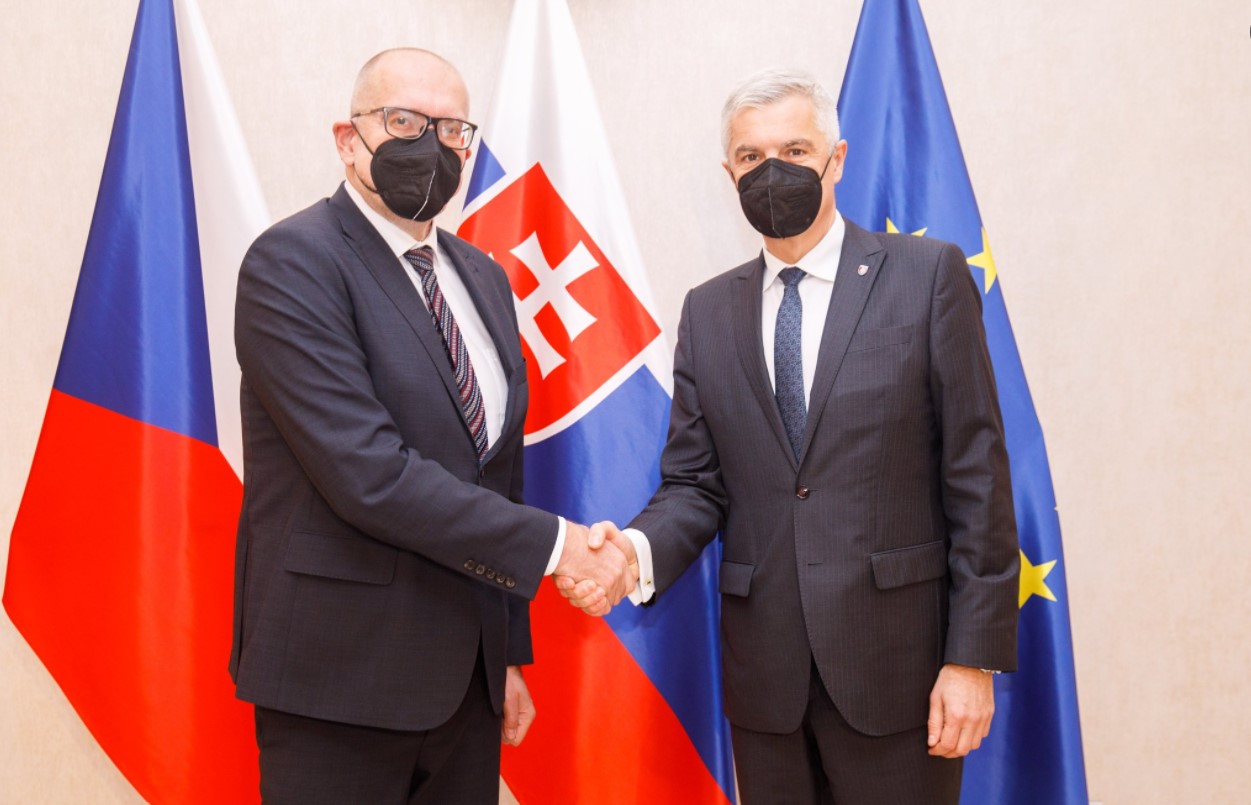Czechia’s new government is showing further signs that it is willing to drive a wedge between the traditional Visegrád Four alliance that has defined Czechia, Hungary, Poland, and Slovakia, with the Czech minister for European affairs proposing on Monday a Czech-Slovak “tandem” as a counterweight to the views of Poland and Hungary.
Czechia’s foreign minister, Mikuláš Bek, who is from the left-wing Pirate Party, pointed to the upcoming Czech EU Presidency and the Slovak presidency of the Visegrád Group. He said that freedom and responsibility of the media could become a mutual theme for Slovakia and Czechia, according to Czech news outlet Echo24.
According to Bek, the Czech-Slovak tandem would address, for example, the rule of law and the conflict with the EU. As Remix News previously reported, the appointment of Bek to minister of European affairs signals that Czechia is stepping away from its long-standing relationship with Poland and Hungary, with Bek making a number of negative statements about the conservative governments in Hungary and Poland.
“Our position in their rule of law stand-off with the European Union will definitely be different to theirs,” the Czech minister of European affairs said last year.
“One of the topics we are interested in together is the freedom and responsibility of the media. I expect that some of the priorities of the Czech presidency will go in this direction, and it seems that it also finds understanding on the Slovak side. Slovakia had a relatively drastic experience in the media world, and the Czech Republic has had a rather complex debate about the control of public media or the influence of some private companies on the media market,” said Bek, who met with Slovakia’s Foreign Minister Ivan Korčok.
Investigative journalist Ján Kuciak and his fiancée were murdered in Slovakia four years ago. According to the police, the motive for the act was Kuciak’s work. Three defendants in the journalist’s murder are already serving a long-term prison sentence. In the case of two other defendants, the courts have not yet delivered a final verdict. Kuciak’s assassination sparked large-scale demonstrations in the country, which resulted in the replacement of then Prime Minister Robert Fico.
The two countries share several priorities
“I am pleased that we have found agreement with Minister Bek on many sectoral priorities of the Czech Presidency of the Council of the EU, such as cyber security, the fight against deforestation, or the protection of journalists,” Slovakia’s Foreign Minister undersecretary Martin Klus stated in a press release.
According to Bek, the main topic of his talks in Slovakia was cooperation between the two countries during Czechia’s Presidency of the Council of the EU in the second half of the year. At that time, Slovakia will preside over the Visegrád Group.
“At the current V4 meetings, for example, Polish or Hungarian colleagues raise the issue of the rule of law, and their thoughts on the matter, or their views on the conflict with the European Union. So I think it is appropriate for the Czech and Slovak Republics to bring into the discussion topics in which maybe we won’t necessarily have a common standpoint,” said Bek.
According to him, the Czech and Slovak governments have the same view on several topics and are not divided, for example, by the rule of law issue, which is important for Hungary and Poland.
“It is certainly true that there are fewer differences between the Czech and Slovak governments than between the other V4 members,” added Bek as Minister Korčok agreed that Czechia and Slovakia share the same stance on the rule of law matter.
The Czech minister also stated that relations within the Eastern Partnership would be one of the priorities of the Czech Presidency of the EU.
“In this, we also have a similar opinion with Slovakia, and we have a relatively distant opinion from the position that Hungary has recently taken in this matter,” Bek noted.
Bek has previously said Czechia will try to balance the traditional regional alliances with Poland and Hungary, which have long-standing disputes with Brussels, by building new relations.
“We have a system in place for pretty close cooperation with our counterparts in the Visegrad Group,” Bek said to Bloomberg.
“That’s good, and it has been productive for us, but we need to reach beyond that and create something similar with other countries too,” he added.






